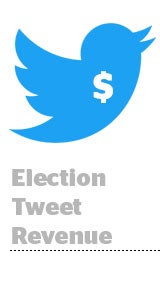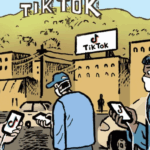Tweets about politics during the US presidential election drove monetizable daily active use of the platform up 27% year over year during Q4, to 192 million. Revenue grew in lockstep with that use, rising 28% to $1.3 billion during the same time period.
Advertising grew not just because of increased use, however, but due to improved ad products and measurement, said Twitter CFO Ned Segal.
“Advertisers are benefitting from new ad formats, stronger attribution and improved targeting,” Segal said. Advertising overall grew 31% to $1.2 billion.
Twitter’s performance ad plans
On the direct response side, Twitter’s app install and promotion products (Mobile Application Promotion or MAP) grew 50% year over year.
Twitter is forecasting a modest impact from iOS 14. Broadly, it’s investing in products, such as Twitter click ID, which enables attribution without cookies. It will also use Apple’s SKAdNetwork product for attribution on iOS 14 devices.
Coming off a more than nine month long project to rebuild its ad server, Twitter now believes it can roll out new products faster than it has before, and “play offense on revenue products,” Segal said. Twitter also wants to pick up revenue from small and medium-sized businesses, a mainstay of its rivals, including Facebook and Google.
Twitter wants to enable advertising all the way through to purchasing. Eventually, people will be able to buy products through Twitter, Segal said.
Twitter’s branding aspirations
On the branding side, the Capitol riots came at an inopportune time for Twitter, just as many brands were thinking about where they wanted to show up in 2021, Segal said. The events culminated in former President Trump being banned from the platform.
Twitter’s ability to let people gather virtually, however, played to its benefit during the Super Bowl when 40 advertisers showed up during the game to be part of the conversation happening on Twitter.
Still, Twitter’s platform does raise brand safety concerns for advertisers. Twitter noted there was a downtick in ad revenue in the days bracketing the Nov. 3 presidential election in the United States.
Platform growth
On the heels of banning former President Trump, CEO Jack Dorsey said that Twitter is making changes in 2021 to promote “healthier conversations for those who use our service, including advertisers and partners.”
Twitter’s goal is to make sure its newbies find what they’re looking for and feel safe staying there, Segal said. The “topics” product is helping people find conversations that are relevant to them, and products such Birdwatch, which helps flag misinformation, are intended to reduce the amount of fake news distributed by the platform.
Following a year when the pandemic and a contentious election fueled use of its platform, Twitter expects growth in 2021 to slow.
Twitter said it’s doing a better job of retaining new users than it has in the past. For example, Twitter is creating more nuanced experiences, such as giving different information to baseball fans on the east coast vs. baseball fans on the west coast.













